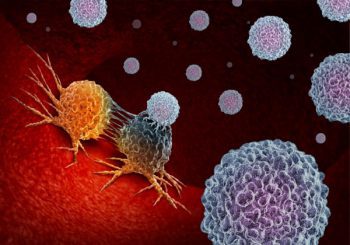 By Sayer Ji
By Sayer Ji
Contributing writer for Wake Up World
Researchers have been studying natural compounds that provide immunological support for decades, but several of these compounds stand out for their therapeutic potential in the stimulation and protection of the immune system. Try adding these seven natural substances to your diet for immune enhancement:
[pro_ad_display_adzone id=”110028″]
1. Vitamin C
In addition to its role in various metabolic and physiological functions, your body uses vitamin C to protect your immune system, and researchers have studied the efficacy of vitamin C as a therapeutic treatment in the prevention of cancer, diabetes, atherosclerosis, the common cold, stroke and heart disease.[i]
Vitamin C improves neutrophil chemotaxis, a process that betters the ability of neutrophils (a type of white blood cell) to move toward sites of inflammation or infection and increases the body’s ability to fight disease.[ii],[iii] Finally, vitamin C also protects against reactive oxidant species, reducing the risk and severity of a variety of illnesses.[iv]
2. Korean Ginseng
Korean ginseng, also known as Panax ginseng, possesses strong antioxidant and immune-stimulating properties.[v],[vi] Korean ginseng helps regulate immune cell function, including macrophages, T cells, B cells and natural killer cells, and improves inflammation through its high content of a variety of pharmacological compounds, like ginsenosides and acidic polysaccharides.[vii]
In most cases, it is ginseng root extract that is used to maintain immune homeostasis, although the other parts of the plant can be used as well.[viii] Ginseng root is often consumed raw or as a juice, tea or powder, and some studies have suggested that daily consumption of Korean ginseng may decrease oxidative damage and improve immunomodulatory activity while presenting no adverse side effects.[ix],[x]
3. Astaxanthin
Astaxanthin is a carotenoid antioxidant that possesses potent immuno-modulation properties, including the ability to increase interleukin production, a type of cytokine expressed by white blood cells.[xi]
Additional studies have found that dietary intake of astaxanthin may heighten immune response while also reducing DNA damage and inflammation, and astaxanthin may play a protective role in immune function by limiting free radical damage to immune cells.[xii],[xiii]
4. Shiitake Mushrooms
Medicinal mushrooms and their benefits have been studied extensively for many years, however, recent research has revealed that this traditional oriental therapy may also modulate the immune response by activating lymphocytes and dendritic cells, thereby up-regulating the production of cytokines.[xiv],[xv]
In fact, scientists discovered that lentinan, an immunostimulant derived from shiitake mushrooms, may have prophylactic potential in the treatment of malaria, hyperhomocysteinemia, gingivitis and cancer.[xvi],[xvii],[xviii] In one study, daily consumption of shiitake mushrooms drastically improved the immunity of healthy adults by improving cell proliferation and secretory immunoglobulin, a powerful antibody found in saliva.[xix]
5. Curcumin
Curcumin is best known for its anti-inflammatory and antioxidant properties, but researchers have become increasingly interested in this curcuminoid’s ability to modulate the immune system, especially in cases of cancer prevention and treatment.[xx]
In addition to these benefits, curcumin improves antibody response and modulates the activity of natural killer cells and T cells, two kinds of cells that form the foundation of your adaptive immune response.[xxi],[xxii]
While researchers remain concerned about the poor bioavailability of curcumin and continue to study its use in hopes of finding a more effective version of this highly nutritious compound — the main active ingredient in the spice turmeric — many research studies have demonstrated that daily curcumin consumption presents no adverse effects while improving physical function, decreasing levels of inflammation and exerting immunomodulatory effects by altering circulating interleukin concentrations.[xxiii],[xxiv]
6. Fermented Food
Fermented foods and beverages like kimchi, sauerkraut, yogurt, kefir, kombucha and miso are often touted for their gut-microbiome stimulating effects, but their benefits don’t end with digestive health.
Researchers theorize that a dietary deprivation of these types of foods could lead to a fall in immune response, even among healthy individuals, and multiple studies have shown that an associated action of fermented foods can improve mucosal immune function and prevent disease.[xxv],[xxvi],[xxvii]
By improving the lining of the gastrointestinal tract, the beneficial bacteria contained in fermented foods decrease the number of harmful bacteria able to pass from the gut into the bloodstream, preventing pathogens from invading and infecting the body.[xxviii]
7. Echinacea
Echinacea extract is a well-known herbal remedy recognized for decades as a therapeutic treatment for the common cold, and scientists have found that echinacea stimulates immune function in both healthy and immune-suppressed patients.[xxix],[xxx]
Researchers have demonstrated that echinacea supplementation can be used to successfully enhance cytokine production, increase leukocyte mobility and activate natural killer cells, which decreases the likelihood of illness.[xxxi],[xxxii]
While researchers are still unsure as to the exact mechanisms of echinacea that drive these immuno-stimulating properties, its benefits may be tied to its high glycoprotein, polysaccharide and caffeic acid derivatives content, three compounds with demonstrated ability to activate the natural killer cells needed to fight and prevent illness.[xxxiii]
Researchers are excited by the possible health benefits contained in these well-researched foods and supplements. To reap their benefits, try adding the foods into your weekly meal rotation or adding the supplements to your daily regimen. To learn more about additional natural compounds, foods and healing substances and the research being done in this field, visit the GreenMedInfo.com therapeutic substances database.
References:
[i] Indian J Clin Biochem. 2013 Oct; 28(4): 314-328.
[ii] J Leukoc Biol. 2006 Dec;80(6):1281-8. Epub 2006 Sep 8.
[iii] Nutrients. 2017 Nov; 9(11): 1211.
[iv] Ann Nutr Metab. 2006;50(2):85-94. Epub 2005 Dec 21.
[v] J Ginseng Res. 2019 Apr;43(2):252-260. doi: 10.1016/j.jgr.2018.02.003. Epub 2018 Feb 13.
[vi] J Ginseng Res. 2018 Oct; 42(4): 577-584.
[vii] J Ginseng Res. 2012 Oct; 36(4): 354-368.
[viii] J Ginseng Res. 2012 Oct; 36(4): 354-368.
[ix] J Ginseng Res. 2018 Oct; 42(4): 571-576.
[x] Nutr J. 2012; 11: 47.
[xi] Int J Mol Sci. 2016 Jan; 17(1): 44.
[xii] Nutrients. 2018 Apr; 10(4): 522.
[xiii] Vet Immunol Immunopathol. 2011 Apr 15;140(3-4):199-206. doi: 10.1016/j.vetimm.2010.12.004. Epub 2010 Dec 14.
[xiv] Mediators Inflamm. 2005 Jun 9; 2005(2): 63-80.
[xv] Integr Med (Encinitas). 2014 Feb; 13(1): 32-44.
[xvi] Pharmacogn Rev. 2016 Jul-Dec; 10(20): 100-104.
[xvii] Exp Ther Med. 2013 Aug; 6(2): 465-468.
[xviii] Int Immunopharmacol. 2009 Apr;9(4):455-62. doi: 10.1016/j.intimp.2009.01.010. Epub 2009 Feb 2.
[xix] J Am Coll Nutr. 2015;34(6):478-87. doi: 10.1080/07315724.2014.950391. Epub 2015 Apr 11.
[xx] Cell Div. 2015; 10: 6.
[xxi] Immunology. 2008 Jan; 123(1): 13-16.
[xxii] J Clin Immunol. 2007 Jan;27(1):19-35. Epub 2007 Jan 9.
[xxiii] Molecules. 2018 Nov; 23(11): 2778.
[xxiv] Foods. 2017 Oct; 6(10): 92.
[xxv] J Dairy Res. 2006 Nov;73(4):492-8. Epub 2006 Sep 21.
[xxvi] J Appl Microbiol. 2006 Jun;100(6):1171-85.
[xxvii] Nutrition. 2009 May;25(5):499-505. doi: 10.1016/j.nut.2008.10.022. Epub 2009 Jan 3.
[xxviii] J Appl Microbiol. 2006 Jun;100(6):1171-85.
[xxix] Evid Based Complement Alternat Med. 2012; 2012: 841315.
[xxx] Molecules. 2018 Nov; 23(11): 2778.
[xxxi] Environ Health Prev Med. 2000 Jan; 4(4): 212-216.
[xxxii] Molecules. 2018 Nov; 23(11): 2778.
[xxxiii] Cochrane Database Syst Rev. Author manuscript; available in PMC 2015 Feb 20.
Recommended Articles by Sayer Ji:
- The Power and Mystery of Melanin Explained
- Cell Phone Induced Bodily Harm: How the Bees Can Help
- The Spice That Prevents Fluoride Destroying Your Brain
- How to Clean Your Arteries with One Simple Fruit
- 7 Healing Uses for Lavender Essential Oil
- From Table to Tomb: Cumin’s Health Benefits Rediscovered
- Why You Should Ditch Sugar in Favour of Honey
- The Love Affair Between Saffron and Humanity: As Ancient as Time Itself
- Why Walnut Resembles the Brain It Nourishes
- Magnesium Puts Psychiatric Drugs to Shame for Depression
About the author:
Sayer Ji is the founder of Greenmedinfo.com, a reviewer at the International Journal of Human Nutrition and Functional Medicine, Co-founder and CEO of Systome Biomed, Vice Chairman of the Board of the National Health Federation, and Steering Committee Member of the Global Non-GMO Foundation.
© 2020 GreenMedInfo LLC. This work is reproduced and distributed with the permission of GreenMedInfo LLC. Want to learn more from GreenMedInfo? Sign up for their newsletter here.
[pro_ad_display_adzone id=”110027″]







